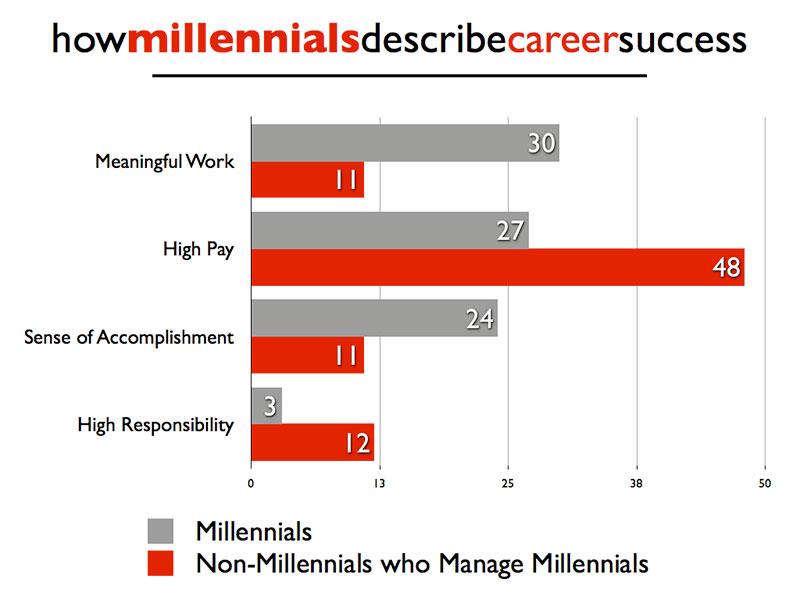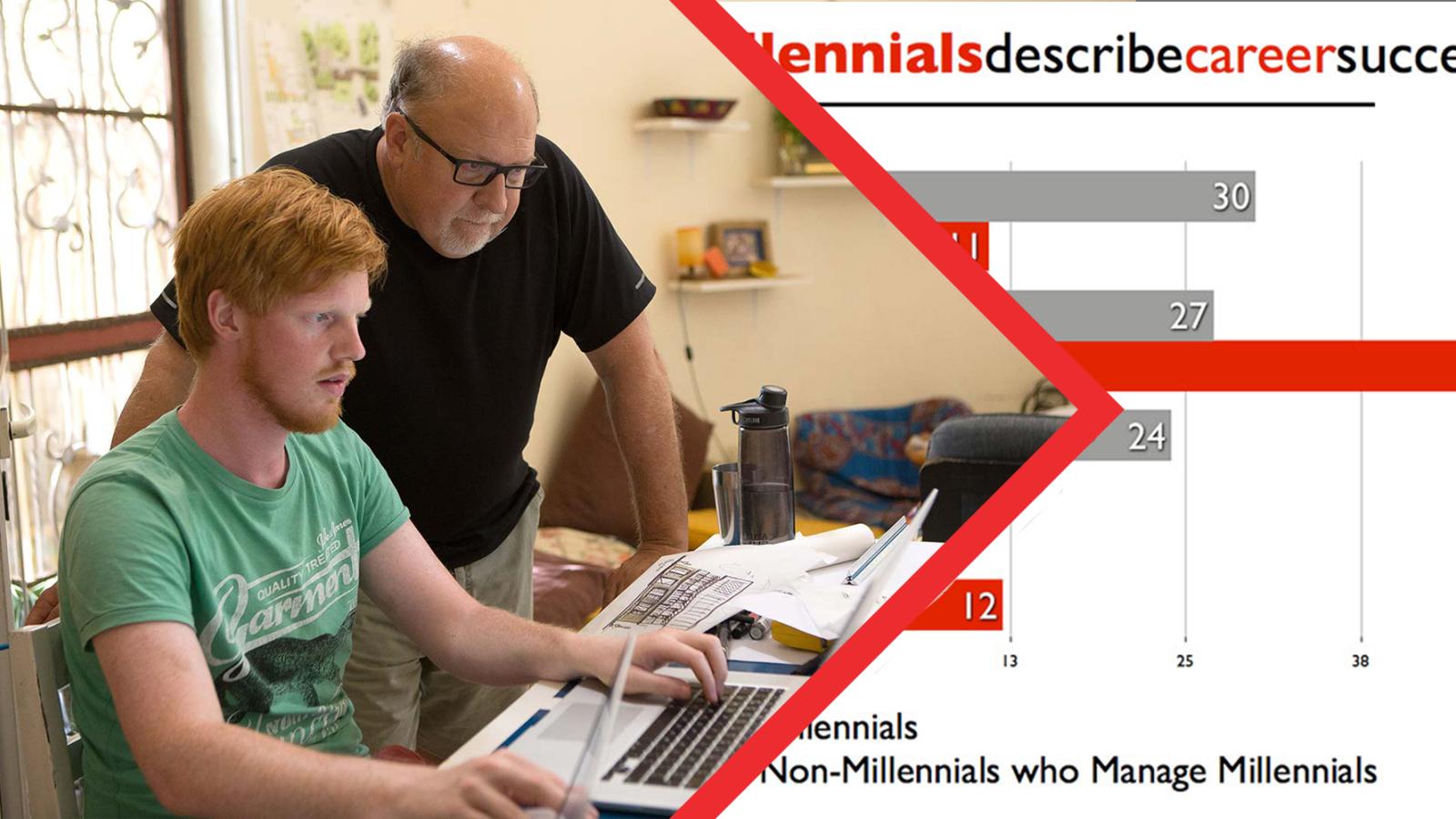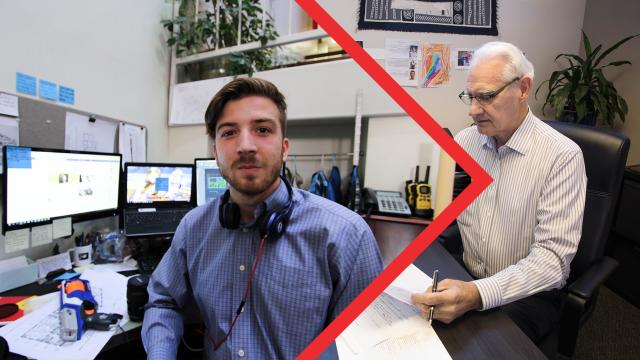Undoubtedly, EMI interns are some of the brightest, most engaged, and highly motivated individuals of today’s college graduates. However, the fact remains that these individuals were born after 1980 and are members of the notorious Millennial generation. This designation brings with it many stereotypes: Millennials have been noted as impatient, non-committal, entitled, and are known for having short attention spans. Can these qualities have a positive aspect as well? As staff and volunteers of EMI, or just citizens of today’s design profession world, we are the ones to bridge the gap. We need to do our part in recognizing who Millennials are. What can we do to develop, disciple, and lead them as the next generation of design professionals?
A Key to Discipleship
The typical western Millennial exhibits a high commitment-phobia. They have always been surrounded by options, so they hold out on making a decision in order to weigh them all. They want be sure they are making the best possible choice. Millennials have even coined a term for this paralysis in decision-making, calling it FOMO – the fear of missing out. This FOMO manifests itself in following God as well. A Millennial can easily get stuck waiting – desperate to be certain they know ‘God’s will’ before taking any action.

As young people graduate high school and reach this critical age bracket of ‘emerging adulthood’ (ages 18-30) they see the maze of life laid out before them. There are innumerable pathways consisting of decisions about which college to attend, which career to pursue, who they marry, where they should live… the possibilities are endless. Many young Christians reach this point in life with an image of God’s will being one distinct path through this maze. They are convinced there is one right way through and all other paths will ultimately lead them outside the will of God. As their mentors, it is our task to help Millennials see the benefit in narrowing their choices and selecting a path. In order to do this, many need help in redefining ‘God’s will’. They need to understand that God’s will is not a puzzle we are meant to piece together or guess at, and it is also not always revealed in full detail. As Kevin DeYoung states in his book Just Do Something, “We can stop pleading with God to show us the future, and start living and obeying like we are confident that He holds the future.”
Millennials in Your Office
Many of the stereotypical qualities of this generation are hints to leading them well. Here are four useful techniques for working with the Millennials in your office:

- Give Constant Feedback Although it may be seen as a short attention span or an entitled attitude, a Millennial’s crave for feedback on their work goes beyond a need for affirmation. Growing up with the internet and social media offering instant gratification, instant feedback, and constant confirmation through the “likes” of their peers has programed this generation’s “social mind-set” differently. In addition to looking for this feedback as motivation and affirmation, millennials truly see it as the best way to complete a project. Receiving feedback along the way allows them to integrate new ideas and direction into their work before submitting a final product. The creative cycle of prototype, feedback, repeat works great for a Millennial and satisfies his or her need to always be learning and growing.
- Establish Goals & Deadlines Millennials desire flexibility and freedom – the ability to autonomously get their work done how, where, and when they choose. But they also need structure. Project due dates, the overall number of hours they are expected to work on a task, and the meetings they are expected to attend each week are critical information for a Millennial’s goal-oriented nature. Rob Wormley explains this balance in terms of a horse race: “The track is there, it has rails along the outside and a start and finish line, but you have no jokey and no bit. Provide the necessary structure, but let Millennials work it to the end without micromanaging.” This structure could look like checklists which help them track their progress so they can see their goals being accomplished. These elements keep a Millennial worker focused and on task.
-
Define a Cause
Image
From “Creating Tomorrow’s Leaders: The Expanding Role of Millennials in the Workplace”, Lauren Stiller Rikleen, Boston College Center for Work & Family, 2011 This generation may not be happy to simply punch a timecard and put in their hours, but this is not a lack of hard-work gumption. Rather it is a desire to know that what they are doing really matters. Millennials care far more about the “why” than the “what”. These individuals are motivated by understanding how their role and the tasks they are assigned will make a difference in the bigger picture of the company or the world as a whole. University of Pennsylvania’s President, Amy Gutmann, said that Millennials are “primed to do well by doing good.” Managers and overseers of this generation have to explain and illustrate the vision of the project and show Millennial interns or workers how they fit into the plan. Only then will they see more energized and productive individuals.
- Create Teams of Individuals This may seem like an oxymoron, but Millennials want to maintain their individuality despite their preference to work in groups or teams. This way they fulfill both their desire to matter as a single person and also their desire to be a part of a larger movement doing work that matters. This generation is known for their “crowdsourcing” tendencies and feel better about the work done by a team. According to an IBM study of Millennial workers, more than 50% said they made better business decisions when there was a group of people providing a variety of input. We can foster Millennials in the workplace by not pushing back on their natural habit to form a group and work together. However, it is important to still provide feedback, set goals, and offer rewards on an individual basis.

We can bridge the gap to the Millennial generation. We can help them see the benefit of narrowing their choices and taking a step. We can encourage them to seek God’s will in their life – but not through the ‘maze lens’ which creates the paralysis and the FOMO that haunts many of their peers. We can provide constant feedback on their work through redlines and regular check-ups. We can increase their productivity by giving them progress checklists, and set deadlines. We can motivate them by showing how each task they complete works towards the greater purpose of the project and why it is valuable. We can foster their natural tendency to work in a team, yet still view them as individuals. Ultimately, Millennials are looking for leaders rather than managers, so let’s go out and lead well!
The EMI Fund
The EMI Fund supports all that we do at EMI. With a strong foundation, we can keep designing a world of hope.
EMI Tech is looking for contributors – write to editor@emiworld.org with your topic and article outline.

